"I may be in Charleston—hundreds of miles away—but I'm still part of the Sewanee community because I'm contributing to it on such a regular basis."
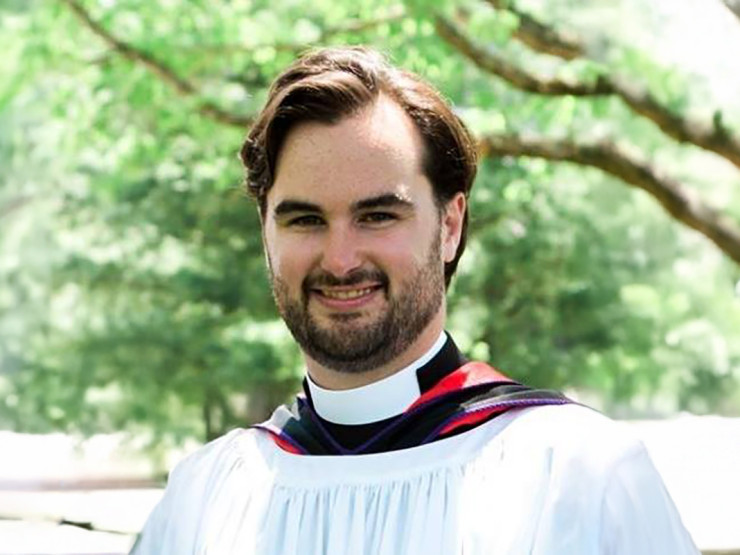
Officially, the Rev. Canon Ryan Currie, C’13, T’18, is the Episcopal Diocese of South Carolina’s canon for common mission—but less formally, he says, he thinks of himself as the diocese’s chief relationship officer. When he’s not organizing events, committees, and cohort groups, he works with the Rt. Rev. Ruth Woodliff-Stanley to discern the diocese’s vision and grow its mission. “There’s no universe in which I could do this work without Sewanee,” Currie says. “Sewanee is much more than a school or university—it’s the place that nurtured me.”
Not only is Currie a “double alum,” with degrees from the College and School of Theology, he is also a current University trustee and former member of the School of Theology’s Alumni Council. After earning a B.A. degree with majors in English and music, he spent two years working in the William Ralston Music Listening Library and Sewanee’s administrative offices, with a side gig bartending at the Sewanee Inn. He met his husband, Richard Culbertson, C’15, T’18, as an undergraduate while serving at All Saints’ Chapel. Donating to the Sewanee Fund and School of Theology scholarships and financial aid, Currie says, gives him a concrete way to stay connected to campus. “I may be in Charleston—hundreds of miles away—but I’m still part of the Sewanee community because I’m contributing to it on such a regular basis.”
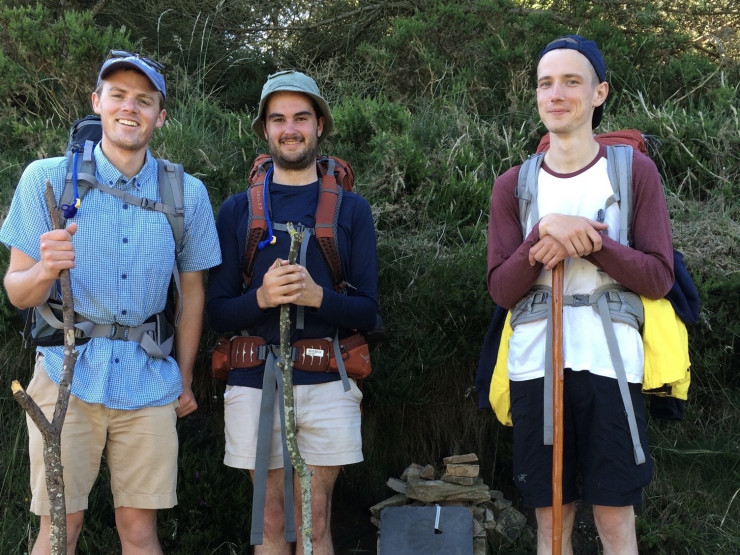
Among the formative experiences Sewanee provided, Currie says, was an introduction to the Episcopal Church. Growing up in Mobile, Alabama, he wasn’t particularly religious, he says, but his piano teacher suggested he could earn extra money by serving as a substitute church organist. “So, I took organ lessons at a Presbyterian church, and the organist there, who was a family friend, said, ‘If you’re going to do anything with [music], you have to sing in the choir.’” Arriving at Sewanee years later, Currie immediately gravitated to the University Choir as a co-curricular activity. As he rehearsed and performed at All Saints’ Chapel, his bond with the Episcopal Church grew. “[All Saints’] is such a hub of community—not only for undergrads, but for the whole campus.” Currie credits former University Choirmaster Robbe Delcamp with shaping him as a musician and learner. “He took his art seriously, and he asked students to take what they were doing seriously, too.”
Currie wondered about a call to ministry during his freshman year, but he also considered a career as an English professor. He says his thesis advisor, former Nick B. Williams Professor of English Dale Richardson, helped him appreciate similarities between the two professions. “Dale mentioned to me, ‘It’s not as if someone who’s in the ministry isn’t also teaching—that’s a key part of [clergy] responsibilities.’” Speaking with Richardson “set off a lightbulb in my head,” Currie says. “I realized being a priest in the Episcopal Church required that I also be a teacher.”
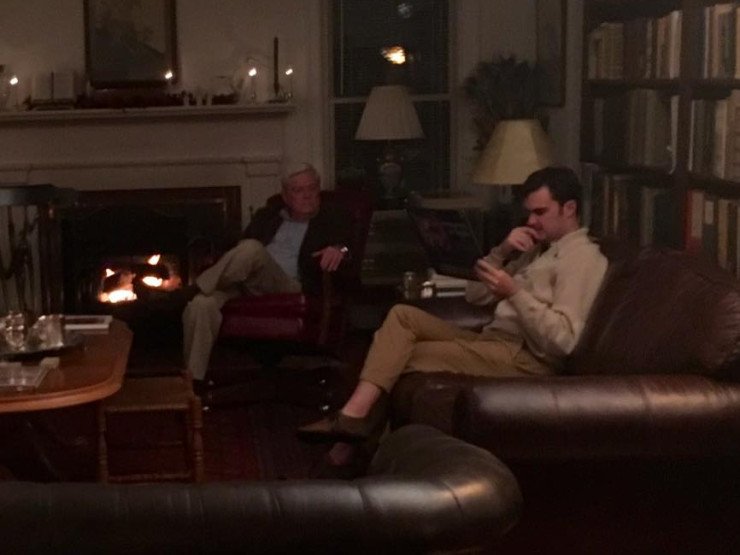
Professor of English Tam Carlson, C’63, and Professor of Spanish Eric Naylor, C’58, who passed away in 2024 and 2019, respectively, were also important mentors, Currie says. Naylor served for many decades as faculty advisor for Chi Psi, Currie’s fraternity, and in 2015 Currie and a Sewanee friend stayed with Naylor for several weeks while traveling around Spain. “We were gallivanting all over Madrid, going to restaurants and attending readings by historians. It seemed like everywhere we went, people knew [Naylor], and they would say, ‘¡Don Eric! ¡Don Eric!’”
Currie and Carlson became acquainted in a Faulkner seminar, which met in Carlson’s living room. Currie says Carlson and his wife, Chris Ausley Carlson, C’83, always offered delicious refreshments, including beverages served in “silver cups collected from all manner of people,” such as former Professor of English and The Sewanee Review Editor Andrew Lytle, H’73; the Rev. Dr. William Henry Ralston Jr., C’51; and Eudora Welty, H’71. At Currie’s graduation, Carlson presented him with the University’s prestigious Andrew Nelson Lytle Award for Excellence in Southern Studies—and offered him a job as a curatorial assistant in the Ralston Listening Library. “Together, Tam and I came up with a system for organizing the [library’s] collection that’s still in place, and I think it still works pretty well,” Currie says. Recently, Currie joined with Sewanee friends to establish a book club inspired by Carlson’s syllabus. “We’re going to read works by Andrew Lytle for our first year,” he says, “then we’ll branch out to other Southern literature.”
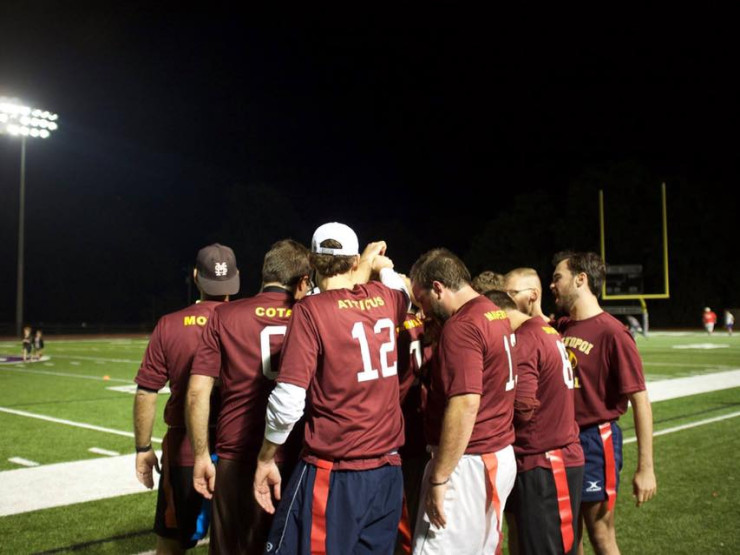
As a seminarian, Currie lived with Culbertson and other housemates, including the Rev. Terry Quoi, T’17, in the Workman House, a private home that was converted into a School of Theology residence. “I can’t overstate what a gift residential theological education is in training for ministry,” Currie says. “You’re not just getting the classroom experience—you’re getting immersion in Christian life and community, which is where most of us are going to live out our vocations.” Living and learning in community can require navigating differences, and it creates the opportunity to gain new perspectives, as Currie says he discovered. He notes that Quoi is from Liberia, where same-sex relationships are currently outlawed, but the three housemates nevertheless developed a friendship while living together on the Mountain. “We came to know each other in a deeper way that transcended some of those boundaries and divisions.”
Currie says his School of Theology coursework was challenging but rewarding. In particular, he enjoyed a course on the writings of German pastor and anti-Nazi dissident Dietrich Bonhoeffer, taught by Associate Professor of Theological Ethics Andrew Thompson. Bonhoeffer, who was executed by the Nazi regime in 1945, “gets claimed by all sorts of different political interests,” Currie says. “His legacy has remained very current, and [Thompson’s course] offered the chance to dig into it intellectually—to use our critical thinking skills and not just accept the narratives offered by one political side or the other. It was really eye-opening.” During his senior year at the seminary, Currie was awarded the School of Theology Prize in Theology and Ethics—which surprised him, he says, “because the worst grade I ever got in seminary was a C-minus on a paper for Andy Thompson. I guess I’ve improved from there!”
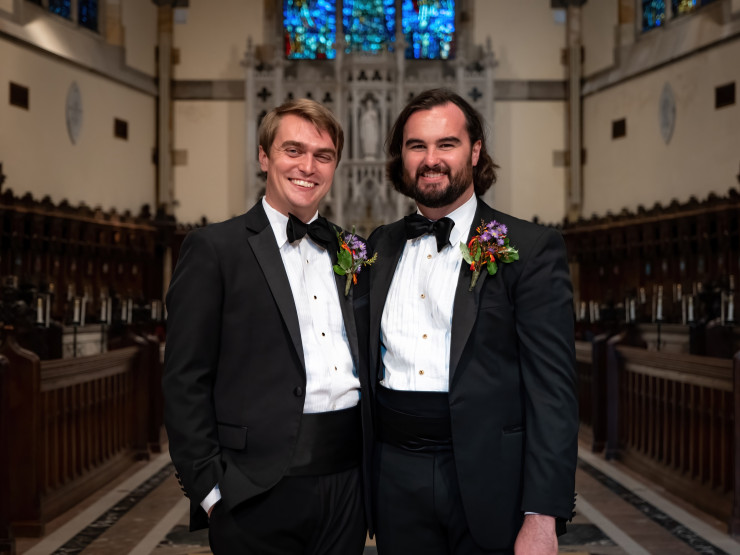
Currie set up a recurring monthly gift to the Sewanee Fund soon after his School of Theology graduation, and he also contributes regularly to School of Theology scholarships and financial aid. “I set up my monthly gift as a way of giving a daily gift,” he says, “because I think about Sewanee every day—in my work, in my relationship, in my book club, etc..” School of Theology Director of Development the Rev. Casey Perkins, T’22, sees similarities between recurring Sewanee giving and religious tithing. “In most Christian denominations, tithing is understood to be a voluntary act of faith and charity that strengthens our community as a whole,” he says. “Monthly giving to the College or School of Theology is also a very personal, individual act that makes our community better. It’s EQB in action.”
When Currie returns to campus for Board of Trustees meetings, he tries to stop by the overlook at Proctor’s Hall—it’s where he proposed to Culbertson in 2020. Their wedding at All Saints’ Chapel in 2022 was the first gay male marriage performed there, a milestone which, Currie says, makes him “extremely proud.” Though the Domain has plenty of idyllic spots, Currie pushes back against calling Sewanee a bubble. “I would say, Sewanee is very much the real world—a really special slice of the real world. I wish we could make the rest of the world look a little more like it.”

